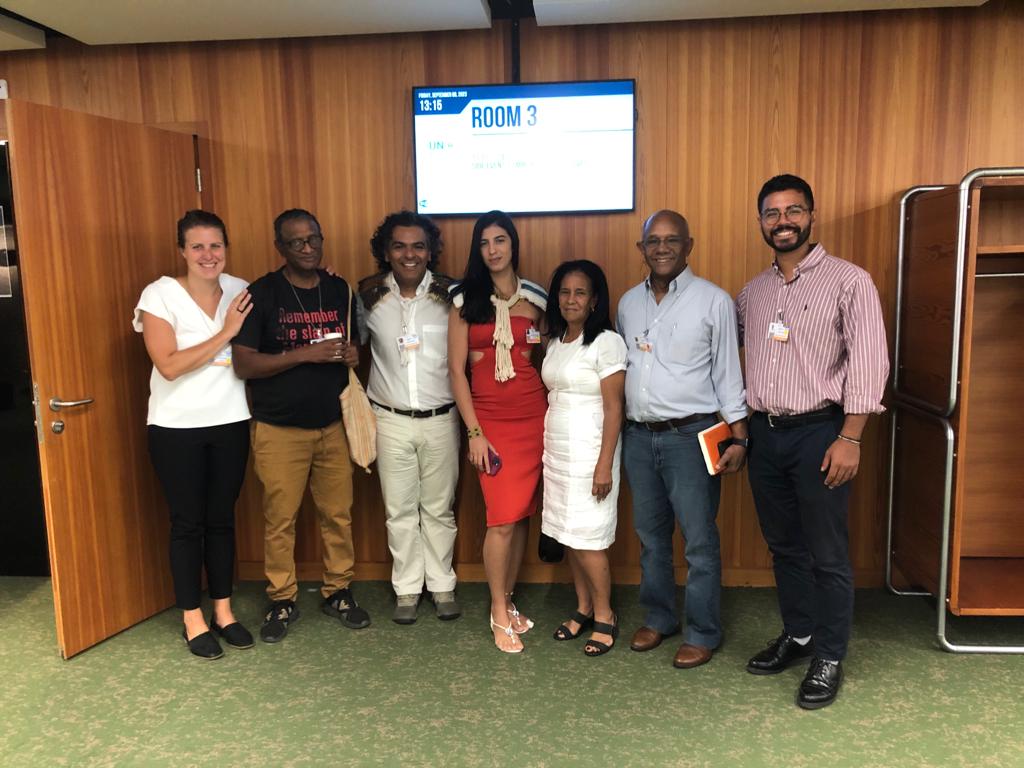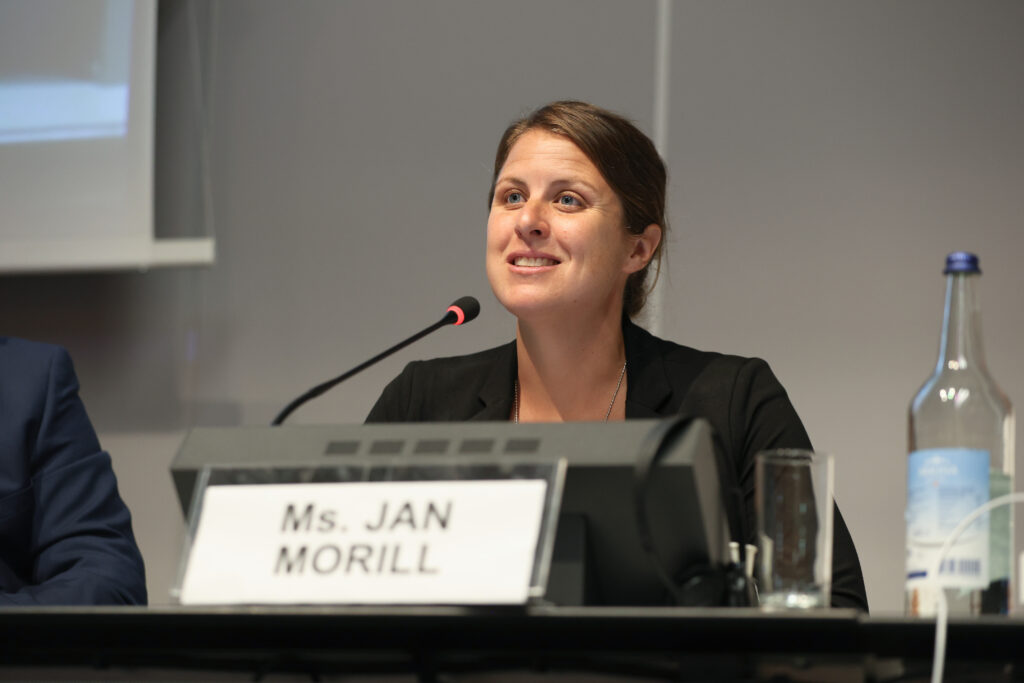From September 5-9, Earthworks was joined by community partners, Indigenous Leaders, and ally organizations in Geneva, Switzerland for the Global Intergovernmental Consultation on Environmental sustainability of Minerals and Metals Management. The global consultation was the culmination of a series of regional intergovernmental consultations held in the five UN regions.
We wanted to highlight community demands for improved tailings management, human rights due diligence, Indigenous self-determination and other critical issues. By participating in person, we were able to lobby relevant government representatives to include our key issues. These consultations also created an opportunity to provide visibility for partners and their local campaigns and create a space for community to community exchange in-person.

Comments we submitted in advance were heavily quoted in the guiding document used to frame the conversations during the consultation, and we co-hosted a side-event attended by over 30 participants from governments, NGOs and UNEP staff. We also, along with the European Environmental Bureau, submitted an op-ed on the UNEA process, and community and Indigenous participation and demands to Euractiv which was published the day before consultations.
I participated in the Technical Panel during the opening session, highlighting the need for FPIC and Indigenous self-determination, meaningful community engagement, stronger mining regulation, a reduction in primary raw materials demand, and referenced Safety First: Guidelines for Responsible Mine Tailings Management, which is linked in the report-back from the event.

I was also able to bring comments and issues raised by Tribal Governments and partner organizations that were unable to attend the Global Consultation in Geneva. Specifically, the issues related to transboundary watershed impacts from mining operations in British Columbia, Canada and Alaska, US as presented by the Tlingit & Haida Tribes and supported by Salmon Beyond Borders. In their written comments to the U.S. Department of State, the Tlingit & Haida Tribes noted that UNEA accepts suggestions and proposals from “member states and other stakeholders” in advance of the consultation but UNEA does not request, and has no mechanism to receive, comments from sovereign tribal nations. This should be remedied by UNEP moving forward.
The group received very positive feedback from government representatives and UNEP staff about both the quality of the participation of civil society and Indigenous Leaders, as well as the need to continue to ensure our participation in future events. Specifically, the German, Dutch, Brazilian, U.S. and Chilean governments made an effort to support our group and build relationships with our participants.
The recommendations and proposals from the Global Consultation will be reviewed and considered by governments over the next couple months. Based on these recommendations and other considerations, governments will then draft proposed resolutions to be voted on at the next UNEA bi-annual assembly in Nairobi in February of 2024. There is an opportunity between now and February to advocate with governments to write and support resolutions that highlight and address the concerns raised by civil society.

